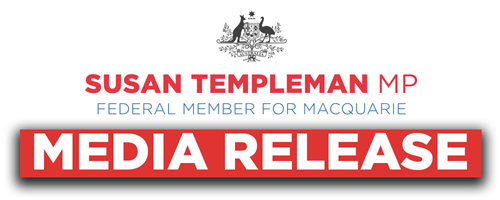
Labor has responded to the Blue Mountains GP shortage with an announcement that an Albanese Government will make it easier to attract more doctors to the region.
Practices in the Blue Mountains will be allowed to recruit overseas trained and bonded medical program doctors to the area, Federal Member for Macquarie Susan Templeman has announced.
“If elected, Labor will designate the Katoomba-Springwood GP catchment - which incorporates the Blue Mountains Local Government Area (LGA) - and part of the Hawkesbury as Distribution Priority Areas (DPAs) for GPs,” Ms Templeman said.
“It will make it much easier for our region to recruit new GPs, and more doctors means pressure can be eased on those who have been desperately trying to meet the increasing demands of our area for three years now.
“GPs have been calling for this since the Federal Government stripped everywhere east of Blackheath of GP priority status in 2019.
“It left the Blue Mountains’ general practices overloaded, and COVID has only made the situation worse.
“Without a vaccination hub, GPs have told me that the pressures mean people with chronic illnesses, mental health issues and those needing procedures like pap smears are being left behind.
“They have had phones running hot after televised press conferences, and staff getting into work are inundated with questions about changes they’ve just learned about on the news coming into the surgery because they haven’t been given early warning about government decisions and changes.
“I’ve been approached by an increasing number of local GPs who, two years into this pandemic, are still shouldering a massive volume of extra issues on top of their usual workload with no end in sight.”
Among the senior Blue Mountains GPs joining the call for urgent reform was Dr Michael de Vries of Winmalee Medical Centre, who said general practices had been under even greater strain due to COVID.
“Most general practices are fully booked for routine issues, and logically an immunisation hub from the initial roll-out would have been the best option,” Dr de Vries said.
“All front office, nursing and medical staff have had to work longer and under more pressure over this period. Each vaccination requires two to three phone calls to organise and confirm on top of their normal front office duties.
“There has been no coordination of medical information. General practices learn of changes to protocols via news feeds at the same time as patients.
“There has been no consultation before changes and practices are inundated with requests we often cannot manage.
“There have been many phone calls to provide access to doctors to give routine primary care, for which no appointments are available.
“There has also been an issue with supply – especially in regards to protective equipment, vaccines and suitable needles. We simply do not have the requested medical requirements.”
Cherie Brandon from Blue Mountains Women’s Health and Resource Centre (BMWHRC) said the centre had gone for months without a GP, despite the overwhelming demand from women with complex health needs.
“We went at least three to four months without a GP. We then had one GP for one day per week, and as of last week we had another start for one day per week,” Ms Brandon said.
“Until last week, our one GP was booked out until March due to the shortage.”
The calls follow similar situations highlighted by staff at Katoomba Medical Practice, who met with Ms Templeman in November last year to highlight concerns over chronic shortages caused by a lack of incentives,


